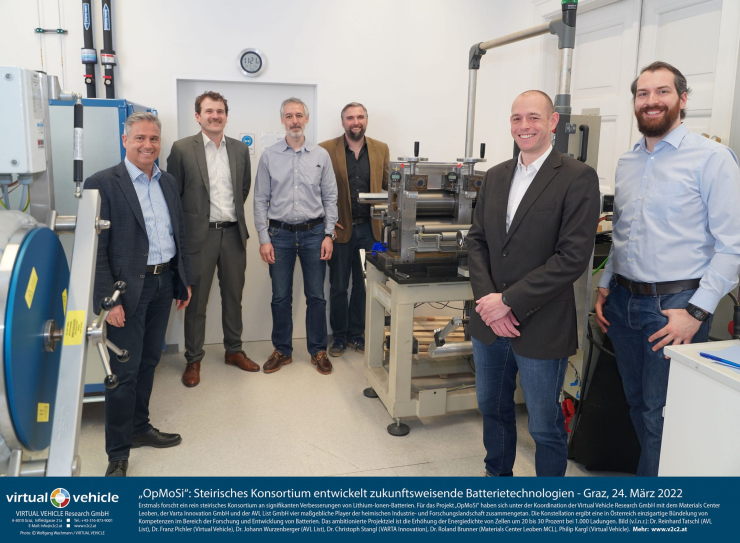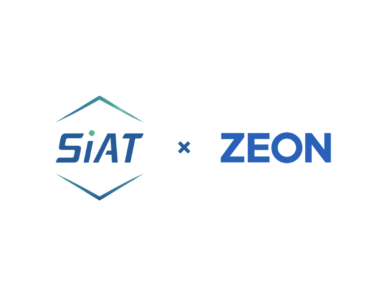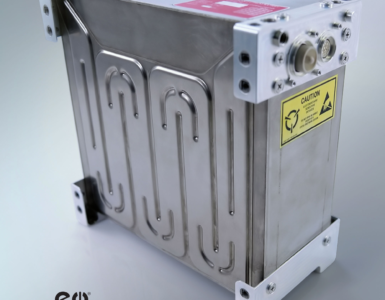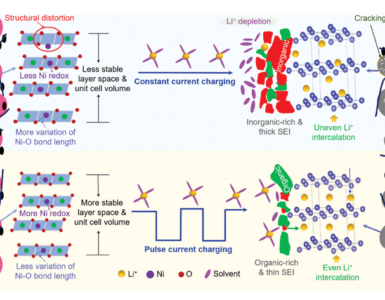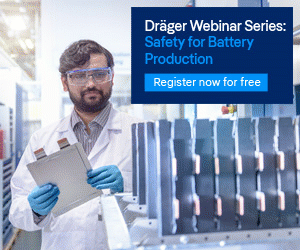OpMoSi Project – consortium developed pioneering battery technologies.
For the first time, a purely Styrian consortium is researching significant improvements Lithium Ion Batteries. Four key players have joined forces for the “OpMoSi” project of the domestic industrial and research landscape.
The constellation results in a bundling of competences in the field of which is unique in Austria Research and development of batteries. The ambitious project goal is Increasing the energy density of cells by 20 to 30 percent for 1,000 charges.
The lithium-ion battery has had a conquered the world. You can find them in smartphones, Digital cameras, e-bikes, notebooks or cordless screwdrivers. In the field of electrochemical Energy storage has meanwhile supplanted all competing technologies.
🔥 What about we co-host a webinar? Let's educate, captivate, and convert the battery economy!
Batteries News is the global go-to online magazine for the battery industry, we can help you host impactful webinars that become a global reference on your topic and are an evergreen source of leads. Click here to request more details
Not least due to the rapid development in the field of e-mobility, the technology also a – Asian-dominated – billion-euro market with constantly high growth rates.
A The reason for this success is that the energy density of batteries has increased over the past 30 years has more than tripled. Another improvement in technology and the Development of new materials is necessary to continue this trend.
Styrian cooperation
This is where a Styrian consortium of research and business comes in. For the project Four local players have teamed up “OpMoSi” to further develop the advance lithium-ion technology. The consortium is coordinated by Virtual Vehicle Research GmbH.
The research center works in close coordination with the Materials Center Leoben Forschung GmbH, Varta Innovation GmbH and AVL List GmbH. Competent partners have thus come together who offer both excellence in their respective fields of expertise as well as many years of experience in the field of lithium-ion technology.
The constellation is unique in Austria Bundling of competencies in the field of battery research and development. Thanks for staying up to date with batteriesnews.com
More sustainability
The primary goal of the ambitious project is to increase the charge density and lifetime of increase lithium-ion batteries. This is to be achieved through a new type of “Hollow Core Shell Silicon Carbon (HCS Si-C) Composite Anodes”.
This next-generation lithium-ion battery is said to have a 30 percent increase over existing technologies Achieve energy density with the same charging stability.
In the development process of this new Cell generation are the competences of the project partners in different areas effectively combined and bundled: from simulation to electrode/cell production to electrochemistry.
In the future, a more targeted, cost-effective and resource-saving production of improved lithium-ion batteries with Si anodes be made possible.
“OpMoSi” strengthens Austrian competences in research and development. With that can relevant future development tasks in Austria and at European level (IPCEI, HORIZON EU) are fully supported. After successful project implementation, a Follow-up project planned at national or EU level.
Consortium Partners/Statements
Virtual Vehicle Research GmbH (consortium leader)
With 300 employees, Virtual Vehicle Research GmbH is Europe’s largest Research center for virtual vehicle development. Research focus is the narrow Linking of comprehensive system simulation and hardware tests in the automotive and railway industry.
Jost Bernasch, Managing director:
OpMoSi is a Styrian flagship project in which the Taking lithium-ion battery technology to the next level.
“When consortium leader and scientific partner, we are researching a significantly improved Energy density for future batteries. We have shown that we have the results Basic research can be successfully implemented in automotive applications.”
The Materials Center Leoben (MCL) is internationally positioned Research company and specialized in materials, manufacturing and Manufacturing processes and innovative use of materials. The material focus is included metallic and ceramic materials and their compounds.
Roland Brunner, group leader at MCL:
Our expertise in the field of materials research is extremely valuable for the project in relation to the structure – property relationship of the anode.
“For this we use the latest high-resolution imaging methods as well as AI-based ones Image analysis models to best understand the structure of the anode.”
Varta Innovation Ltd
VARTA Innovation GmbH was established as a joint subsidiary of VARTA Microbattery GmbH and the Graz University of Technology.
The combination with the expertise of Graz University of Technology guarantees a quick transfer of newly developed ones technologies into marketable products.
Dr Christoph Stangl, Project Manager:
We have a high level of expertise in production of electrodes and battery cells and a basic understanding of those used Materials and the cell layout or cell design.
“This allows electrodes and cells be produced within the consortium with high quality.”
AVL List GmbH
AVL List GmbH is a company for the development, simulation and testing of Drive systems in the automotive industry and in other industries. The Austrian Company employs more than 11,000 people worldwide (including 4,000 in Graz) and turned over 1.7 billion euros in 2020.
Dr Roland Wanker, Head of the Advanced Simulation Technologies division:
As a key player in the automotive supply industry, we bring automotive expertise to the consortium.
“AVL not only has many years of expertise in the design and layout of battery modules and battery packs, but is also a leader in the field of scalable multi-physical modeling and simulation of batteries at cell and system level.”
Project “OpMoSi” – Facts
- Styrian consortium: Virtual Vehicle Research GmbH, Materials Center Leoben Research GmbH, Varta Innovation GmbH, AVL List GmbH
- Funding from the FFG as part of the 17th call for proposals “Mobility of the Future”. Total volume 2.7 million euros
- Term: 36 months
- Front-end technology in lithium-ion battery
- Hollow core shell silicon-carbon anodes: almost 4 times the anode capacity high stability (solves the stability problem of known silicon technologies, higher capacity than standard graphite anodes)
- Project goal: Increase in the energy density of cells by 20-30% at 1000 cycles (charges)
READ the latest Batteries News shaping the battery market
Styrian consortium developed pioneering battery technologies, April 19, 2022

